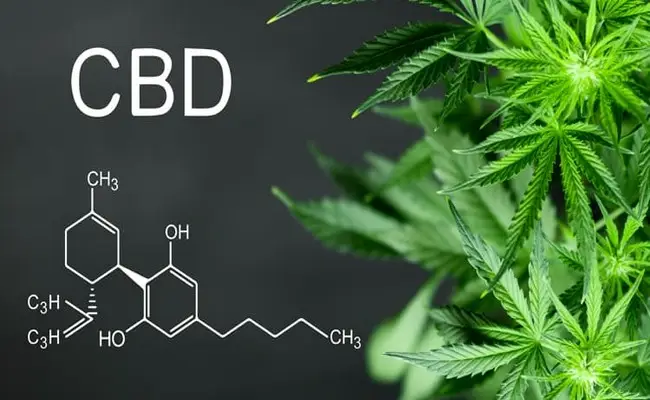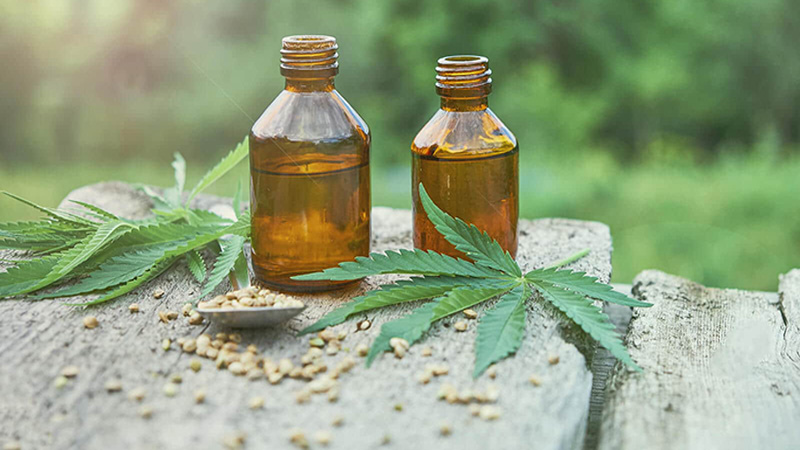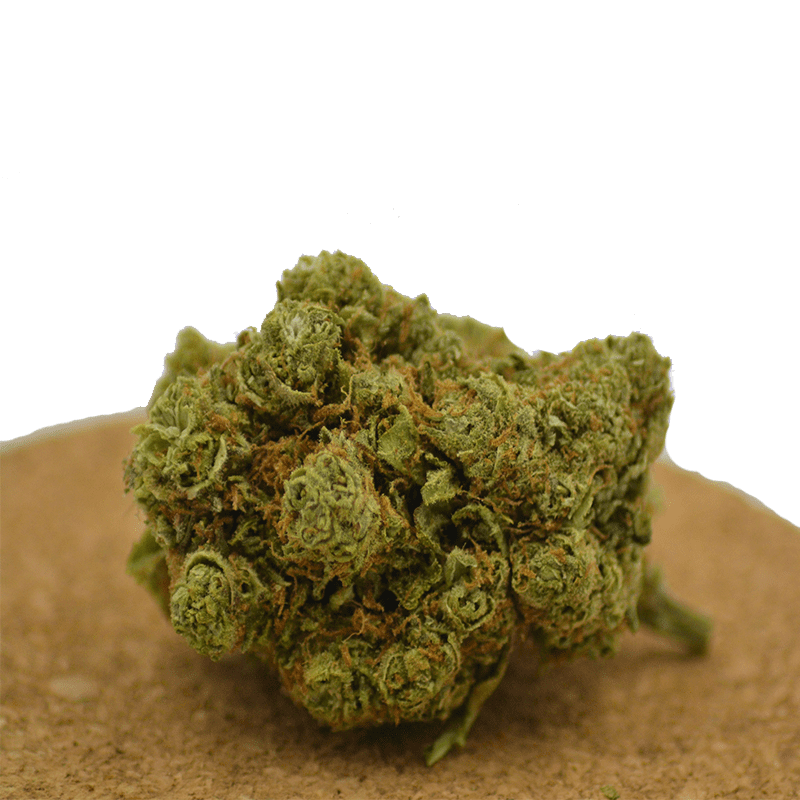CBD is attracting increasing interest and is the subject of in-depth research to better understand its potential benefits and possible side effects.
Table of contents
What does CBD stand for?
CBD is short for 'Cannabidiol', a compound found in the cannabis plant. Cannabidiol is one of hundreds of chemical compounds found in the cannabis plant, but it does not produce a strong psychoactive effect like THC (tetrahydrocannabinol).
Some important points about CBD
Pharmacological properties
CBD is known for its potentially beneficial health properties, such as pain reduction, anti-inflammatory, anxiety reduction and sleep support.
Medical applications
CBD is used in certain medicines and complementary products, often to treat symptoms associated with epilepsy, chronic pain and anxiety disorders.
Legalisation
In many countries, the CBD is not banned and can be sold legally, as long as it does not contain more THC than the legal limit.
Forms of use
CBD can be used in a variety of forms, including oils, capsules, gums, topical creams and even in some foods and drinks.
CBD is attracting increasing interest and is the subject of research to better understand its potential benefits and side effects. Here are some considerations for CBD users.

Is CBD good for human health?
CBD (Cannabidiol) is widely studied and used for its potential to deliver numerous health benefits. However, its effectiveness and safety are still subject to further research. Here are some important points about the benefits and considerations of using CBD:
Potential benefits of CBD
Reduced pain and inflammation
CBD has analgesic effects, particularly in reducing chronic pain associated with illnesses such as arthritis, neuropathic pain and muscle pain.
Studies show that CBD can help reduce inflammation, a contributing factor in many chronic diseases.
Sleep support
CBD can help improve sleep quality in people suffering from insomnia or sleep-related problems.
Reduced anxiety and stress
Research indicates that CBD can help reduce symptoms of anxiety and stress, particularly in disorders such as social anxiety disorder, generalised anxiety disorder and PTSD (post-traumatic stress disorder).
Support for the treatment of epilepsy
CBD has been shown to be effective in reducing the frequency and severity of seizures in people with drug-resistant forms of epilepsy, such as Dravet syndrome and Lennox-Gastaut syndrome.
Anticancer potential
Some studies suggest that CBD may have inhibitory effects on the growth and spread of cancer cells, although more research is needed to confirm this.
Improved cardiovascular health
CBD may help to reduce blood pressure, reduce vascular stress and support overall cardiovascular health.

Considerations and side effects of CBD
Side effects
CBD can cause certain side effects such as dry mouth, fatigue, nausea, changes in taste and diarrhoea.
Some people may experience more serious reactions, such as allergies or adverse reactions to other components of CBD products.
Drug interactions
CBD can interact with certain medicines, increasing or reducing their effectiveness. This is particularly important for people taking medication for chronic illnesses or anti-epileptic drugs.
Quality control
Not all CBD products are strictly tested or regulated. Consumers should be cautious and choose products from reliable sources that are subject to quality controls.
Legalisation
Legislation on CBD can vary from country to country and even from region to region. This can affect the use and sale of CBD.

Is CBD legal in Switzerland?
In Switzerland, CBD (Cannabidiol) is legal and regulated under certain specific laws. Here are the main points concerning the legal situation of CBD in Switzerland:
Legal regulation of CBD in Switzerland
THC content
CBD is considered legal in Switzerland if the product contains less than 1 % of THC (tetrahydrocannabinol).
THC is the high psychoactive compound in cannabis. The limit of 1 % in Switzerland is much higher than in many other countries, where the limit is generally 0.2-0.3 %.
Purchase and use
Products containing CBD can be purchased freely in Switzerland without a prescription, as long as they comply with the THC content limit.
CBD can be sold in various forms, such as oils, capsules, cosmetics, foods and other healthcare products.
Medical and recreational use
CBD is authorised for medical and recreational use, but must comply with THC regulations.
For medical use, CBD-containing products can be used to treat conditions such as epilepsy, chronic pain and sleep disorders.
Quality control and labelling
Products containing CBD must be clearly labelled with the CBD content. CBD and in THCand comply with quality and safety standards.
The Swiss authorities require strict quality controls to ensure that products do not contain banned substances or harmful contaminants.
Importing and exporting
CBD products can be imported into and exported from Switzerland, but must comply with international regulations and the THC content limit.
Consumers should check the regulations in the country of destination when importing CBD products from Switzerland.
Biotechnology and research
Switzerland is encouraging research and development in CBD-related biotechnology to further explore its medical benefits and potential applications.
"CBD is legal in Switzerland and clearly regulated with a THC limit below 1%. The purchase and use of products containing CBD are strictly regulated to ensure consumer safety."
CBD has the potential to bring many health benefits, but it is important to consider side effects and drug interactions. If you are considering using CBD, particularly for medical purposes, it is advisable to consult a doctor or specialist to ensure safety and effectiveness.
To buy CBD or CBD-based products, such as CBD flowers, CBD resin... you can consult Mariswiss products on the website https://mariswiss.com.

